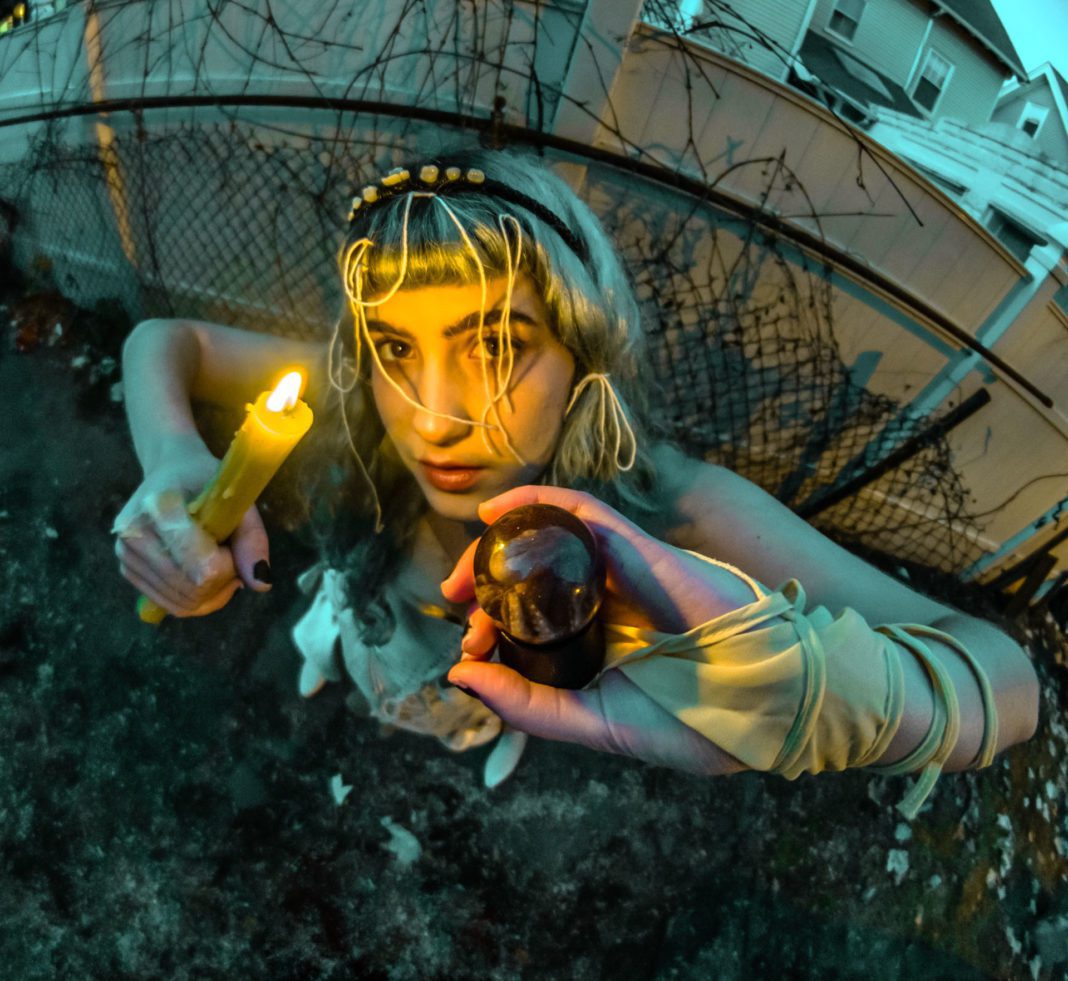Until a recent visit with the up-and-coming singer-songwriter-musician Madeline Kassen, who created her latest album under the name Pisha, I had never encountered the term “bedroom pop.”
But then again, there was no reason I should’ve. It applies to her generation, not mine. And it’s a style she not only knows well, but also has utilized to her advantage.
“Bedroom pop,” she explains, “is basically the movement of people producing and recording music in their bedrooms. I think it kind of lends itself to an introspective and introverted approach. In the time I was recording a lot of that music [for her current album], it was during the pandemic, so it felt like a natural response to go forward with these songs, because I was feeling that way.”
Kassen calls bedroom pop a “newish term,” and she’s all for what it represents.
“I think it’s a wonderful development, that music is more accessible to people,” she says. “I think historically we tried to gatekeep who got to make music or who had access to the knowledge to make music. This is a pivotal moment for music – back to its communal roots.”
Kassen’s own roots lie in Tulsa, where she grew up in a musical family. Her father, Tim Kassen, has been a presence on the area music scene for many years, and her jazz- and pop-vocalist mother performed extensively in the region as Tiffany Tanner.
“She basically told me when I was small that if this is what I was going to do, I would have to accept that sometimes you don’t have the best monetary gain,” says Kassen of her mother. “Of course, that didn’t matter. But she was reassuring in that way, understanding the path I was going to take.”
That path was set very early. Kassen began writing poetry while still in grade school, learned to play the guitar and piano at age 14, and started performing for audiences around Tulsa at about that same time.
“It was slow at first,” she notes. “I had a piano teacher [Stephen Tracy], and he needed a singer and knew that I sang, so it started that way. Then I started frequenting the [Oklahoma] Jazz Hall [of Fame], and out of that came a more regular thing.
“When I was a kid, I had this fantasy about being a rock star,” Kassen adds with a chuckle. “And maybe I just didn’t have the realistic quality that made that go away. But after gigging around Tulsa for a while, and with the support from my family, I felt like I could really do it.”
And, while she made her initial impression as a jazz singer, she always had other goals in mind.
“Writing is how I got into music and performing in the first place,” she says. “Jazz was the vehicle in which I could interact with my community. Once I worked up the guts to share what I was writing, I kind of let it all out.”
In 2016, while she was still a student at Jenks High School, she recorded and released her first disc, a collection of originals that reflected her jazz background. Then she went off to Berklee College of Music in Boston, and when her second recording project, Threnody, recently came out, it was under a different artist name and in a different style: Pisha, and goth electro-pop, respectively.
Kassen took “Pisha” from the name of a video-game vampire, and figured “threnody” – a word that means, loosely, a song or poem lamenting someone who’s died – might also be a nice metaphor for the person she no longer was, as well as the kinds of songs she no longer wrote.
“A lot of the songs on that album deal with the themes of decongesting your thoughts, letting new things come to the surface, where you might have hidden them before,” she explains. “Growing up, I guess. And a lot of the songs are directly talking about frustration – socially.”
The Tulsa-based Cult Love Sound Tapes released Threnody on cassette, something that pleased its creator.
“Having that physical item – there’s a lot to be said about handling music that way,” she says. “You bond with it. You’re drawn to it by how it looks. I really got into making a physical piece of art with the cassette. And, you know, it glows in the dark.”
In addition to writing and performing the songs on Threnody, as well as working on the art for the cassette cover, Kassen also produced all the tracks, using what she learned as a student at Berklee.
“I studied songwriting there, but I focused on music production through songwriting – writing songs that way instead of with a pen and paper.”
In addition to her studies, however, the school was beneficial to her in other ways.
“I think the biggest takeaway from Berklee was just the access to so many talented, inspirational people who are doing really different things,” she says. “Really, I was around so many incredibly talented people, and it was like, ‘Hey, will you play on my thing?’
“‘Yeah, will you sing on this?’
“That was really inspiring. And studying under people who were professional, and having them give you reassurance – that was really huge.”
In addition to the physical copies, Threnody is available on the usual internet streaming services. By the time this story sees print, Pisha will also be on tour.
“I’m with another goth electro-pop act called Coatie Pop – who, ironically, is also from Tulsa,” she says. “We met in New York almost a year ago.
“We’re touring in the northeastern part of the country. As far as performing again in Tulsa, right now it’d be whenever it makes sense. I’m living far away, but, hopefully, as things kind of solidify and now that I’ve graduated college, it can be more accessible. I’ve performed twice in Tulsa since making this project, and I perform very frequently in New York. I recently played the Sultan Room [the famed Brooklyn venue], which was really fun and felt like a happy accident, because it’s a bigger deal than I am. I played Kenyon College. Eventually I want to do the college circuit, because colleges are just exciting.
“Right now,” she adds, “I’m performing with a bass player and my computer. I use a MIDI controller to interact with the music in a live setting. I would love to branch out with a band; that’s one of my goals for this year. But because my music is of an electronic nature, and it’s made on the computer, I have to be clever about how I do it – and that’s been tricky. I’ve talked to my friends about it, ad nauseam, and I think the idea is to add one player at a time. The bass player was a natural evolution.”
And, as Kassen’s touring band evolves, so does her music.
“The music I’m working on now is quite different than what came before, and maybe that’s just because I’m young and there’s a lot to explore. Maybe one day I’ll stop at a certain point. But being raised on the internet, my short attention span is reflected in my many interests. So, in a way, it [her music] is born of the times.
“I think a good pop song is conscious of its times, of what’s going on currently, and speaks to that community and the culture. I believe in sharing with music, and I believe accessibility is important. I don’t mean dumbing things down. This is not the medieval age, and we’re not only letting people who are part of the church make music.
“I’m an avid music fan,” she concludes. “I have like 60 Spotify playlists, and I just made Spotify a year or two ago. But I love listening to music, because I often think, ‘Wow. This person really just said what I feel.’ And it feels so good to be understood.”


























